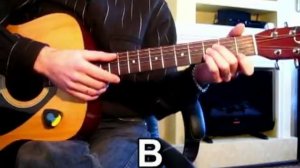
 9:34
9:34
2023-11-14 15:18

 5:11
5:11

 5:11
5:11
2024-10-02 13:49

 6:09
6:09

 6:09
6:09
2024-04-17 01:17
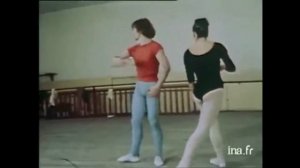
 9:57
9:57

 9:57
9:57
2023-12-27 01:39
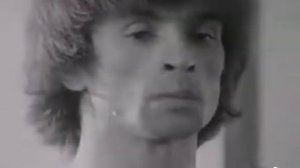
 4:15
4:15

 4:15
4:15
2023-12-26 23:06
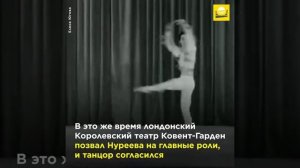
 4:30
4:30

 4:30
4:30
2023-12-26 08:01
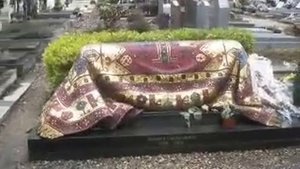
 2:49
2:49

 2:49
2:49
2023-11-21 04:17
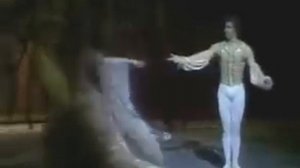
 10:44
10:44

 10:44
10:44
2023-12-25 10:46
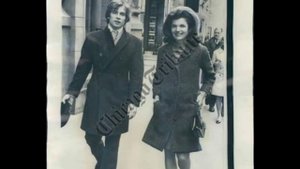
 4:22
4:22

 4:22
4:22
2023-12-26 20:54

 9:21
9:21

 9:21
9:21
2023-11-04 12:25

 14:21
14:21

 14:21
14:21
2025-04-08 11:12
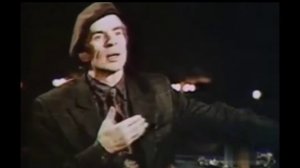
 3:35
3:35

 3:35
3:35
2023-10-03 20:27
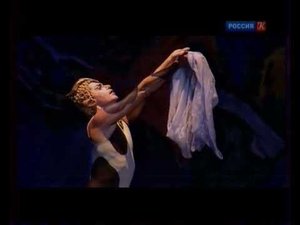
 9:55
9:55

 9:55
9:55
2011-01-06 03:12
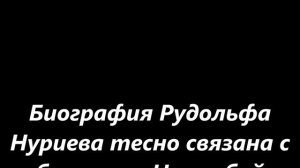
 5:15
5:15

 5:15
5:15
2023-07-08 17:08
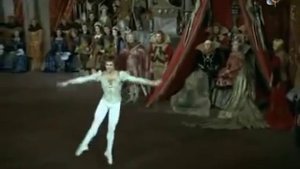
 1:22
1:22

 1:22
1:22
2023-07-25 16:15
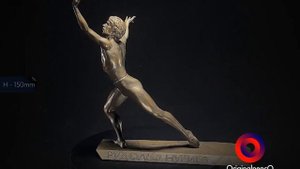
 0:30
0:30

 0:30
0:30
2023-12-26 08:01

 39:00
39:00

 39:00
39:00
2025-09-27 10:59

 4:21
4:21
![Толиб Тухтасинов - Хоп-Хоп (Премьера клипа 2025)]() 3:09
3:09
![Азамат Ражабов - Отам (Премьера клипа 2025)]() 4:38
4:38
![Динара Швец - Новая история (Премьера клипа 2025)]() 3:45
3:45
![Артур Пирожков - ALARM (Премьера клипа 2025)]() 3:22
3:22
![Анна Бершадская - Новая я (Премьера клипа 2025)]() 2:41
2:41
![Рейсан Магомедкеримов, Ренат Омаров - Бла-та-та (Премьера клипа 2025)]() 2:26
2:26
![Дана Лахова - Одинокая луна (Премьера клипа 2025)]() 2:15
2:15
![TASSO - Таю (Премьера клипа 2025)]() 3:23
3:23
![ИЮЛА - Ты был прав (Премьера клипа 2025)]() 2:21
2:21
![MILEN - Украду тебя (Премьера 2025)]() 3:40
3:40
![Lx24 - Сберегу (Премьера клипа 2025)]() 2:57
2:57
![ARTEE - Лети (Премьера клипа 2025)]() 3:13
3:13
![Ольга Сокурова, Ислам и Карина Киш – СИ ГУГЪАПlЭ (Премьера клипа 2025)]() 3:20
3:20
![Олег Семенов - Бархатный сезон (Премьера клипа 2025)]() 3:51
3:51
![Anette - Erjanik em (Official Video 2025)]() 3:36
3:36
![Фати Царикаева - Стамбул (Премьера клипа 2025)]() 2:57
2:57
![MIA BOYKA - А он такой (Премьера клипа 2025)]() 2:24
2:24
![Рустам Батербиев - Пора расстаться (Премьера клипа 2025)]() 2:38
2:38
![ARTIX, SHAXO - Дождь (Премьера клипа 2025)]() 5:23
5:23
![5sta Family - Антидот (Премьера клипа 2025)]() 3:33
3:33
![Блиц | Blitz (2024)]() 2:00:30
2:00:30
![Финикийская схема | The Phoenician Scheme (2025)]() 1:41:27
1:41:27
![Откровения | Revelations (2025)]() 2:02:28
2:02:28
![M3GAN 2 | M3GAN 2.0 (2025)]() 2:00:03
2:00:03
![Ночная сучка | Nightbitch (2024)]() 1:39:36
1:39:36
![Голый пистолет | The Naked Gun (2025)]() 1:26:24
1:26:24
![Вульфмен | Wolf Man (2025)]() 1:42:55
1:42:55
![Углубление (2025)]() 2:07:52
2:07:52
![Фантастическая четвёрка: Первые шаги | The Fantastic Four: First Steps (2025)]() 1:54:40
1:54:40
![Только ты | All of You (2025)]() 1:38:22
1:38:22
![Электрический штат | The Electric State (2025)]() 2:08:34
2:08:34
![Моя мертвая подруга Зои | My Dead Friend Zoe (2024)]() 1:42:40
1:42:40
![Дьявол | Diablo (2025)]() 1:31:20
1:31:20
![Полный нокаут | K.O. (2025)]() 1:26:53
1:26:53
![Французский любовник | French Lover (2025)]() 2:02:20
2:02:20
![Соник 3 в кино | Sonic the Hedgehog 3 (2024)]() 1:50:21
1:50:21
![Тот самый | Him (2025)]() 1:36:20
1:36:20
![Актер | The Actor (2025)]() 1:38:13
1:38:13
![Синг-Синг | Sing Sing (2024)]() 1:46:50
1:46:50
![Хани, не надо! | Honey Don't! (2025)]() 1:29:32
1:29:32
![Пип и Альба. Приключения в Соленой Бухте! Сезон 1]() 11:02
11:02
![МегаМен: Полный заряд Сезон 1]() 10:42
10:42
![Отважные мишки]() 13:00
13:00
![Папа Супергерой Сезон 1]() 4:28
4:28
![Карли – искательница приключений. Древнее королевство]() 13:00
13:00
![Паровозик Титипо]() 13:42
13:42
![Таинственные золотые города]() 23:04
23:04
![Сборники «Простоквашино»]() 1:04:60
1:04:60
![Шахерезада. Нерассказанные истории Сезон 1]() 23:53
23:53
![Новое ПРОСТОКВАШИНО]() 6:30
6:30
![Роботы-пожарные]() 12:31
12:31
![Мультфильмы военных лет | Специальный проект к 80-летию Победы]() 7:20
7:20
![Агент 203]() 21:08
21:08
![Чуч-Мяуч]() 7:04
7:04
![Чемпионы]() 7:21
7:21
![Котёнок Шмяк]() 11:04
11:04
![Сборники «Зебра в клеточку»]() 45:30
45:30
![Супер Зак]() 11:38
11:38
![Кадеты Баданаму Сезон 1]() 11:50
11:50
![Оранжевая корова]() 6:30
6:30

 4:21
4:21Скачать видео
| 256x144 | ||
| 426x240 | ||
| 640x360 | ||
| 854x480 | ||
| 1280x720 | ||
| 1920x1080 |
 3:09
3:09
2025-10-11 21:54
 4:38
4:38
2025-10-11 12:52
 3:45
3:45
2025-10-15 10:45
 3:22
3:22
2025-10-20 14:44
 2:41
2:41
2025-10-22 14:02
 2:26
2:26
2025-10-22 14:10
 2:15
2:15
2025-10-22 14:16
 3:23
3:23
2025-10-16 10:00
 2:21
2:21
2025-10-18 10:16
 3:40
3:40
2025-10-15 11:15
 2:57
2:57
2025-10-11 12:26
 3:13
3:13
2025-10-18 09:47
 3:20
3:20
2025-10-15 10:27
 3:51
3:51
2025-10-16 10:57
 3:36
3:36
2025-10-18 10:11
 2:57
2:57
2025-10-15 10:54
 2:24
2:24
2025-10-14 12:10
 2:38
2:38
2025-10-16 11:06
 5:23
5:23
2025-10-14 11:01
 3:33
3:33
2025-10-22 13:57
0/0
 2:00:30
2:00:30
2025-01-18 21:22
 1:41:27
1:41:27
2025-06-30 07:40
 2:02:28
2:02:28
2025-04-25 00:41
 2:00:03
2:00:03
2025-07-19 19:23
 1:39:36
1:39:36
2025-01-01 23:55
 1:26:24
1:26:24
2025-09-03 13:20
 1:42:55
1:42:55
2025-02-06 16:11
 2:07:52
2:07:52
2025-02-18 18:05
 1:54:40
1:54:40
2025-09-24 11:35
 1:38:22
1:38:22
2025-10-01 12:16
 2:08:34
2:08:34
2025-03-21 19:58
 1:42:40
1:42:40
2025-05-16 16:49
 1:31:20
1:31:20
2025-06-25 14:54
 1:26:53
1:26:53
2025-06-20 15:43
 2:02:20
2:02:20
2025-10-01 12:06
 1:50:21
1:50:21
2025-01-23 19:58
 1:36:20
1:36:20
2025-10-09 20:02
 1:38:13
1:38:13
2025-04-09 20:04
 1:46:50
1:46:50
2025-02-11 12:05
 1:29:32
1:29:32
2025-09-15 11:39
0/0
2021-09-22 23:36
2021-09-22 21:43
 13:00
13:00
2024-11-29 13:39
2021-09-22 21:52
 13:00
13:00
2024-11-28 16:19
 13:42
13:42
2024-11-28 14:12
 23:04
23:04
2025-01-09 17:26
 1:04:60
1:04:60
2025-09-02 13:47
2021-09-22 23:25
 6:30
6:30
2018-04-03 10:35
2021-09-23 00:12
 7:20
7:20
2025-05-03 12:34
 21:08
21:08
2025-01-09 16:39
 7:04
7:04
2022-03-29 15:20
 7:21
7:21
2025-10-07 09:00
 11:04
11:04
2023-05-18 16:41
 45:30
45:30
2025-09-17 18:49
2021-09-22 22:07
2021-09-22 21:17
 6:30
6:30
2022-03-31 18:49
0/0

